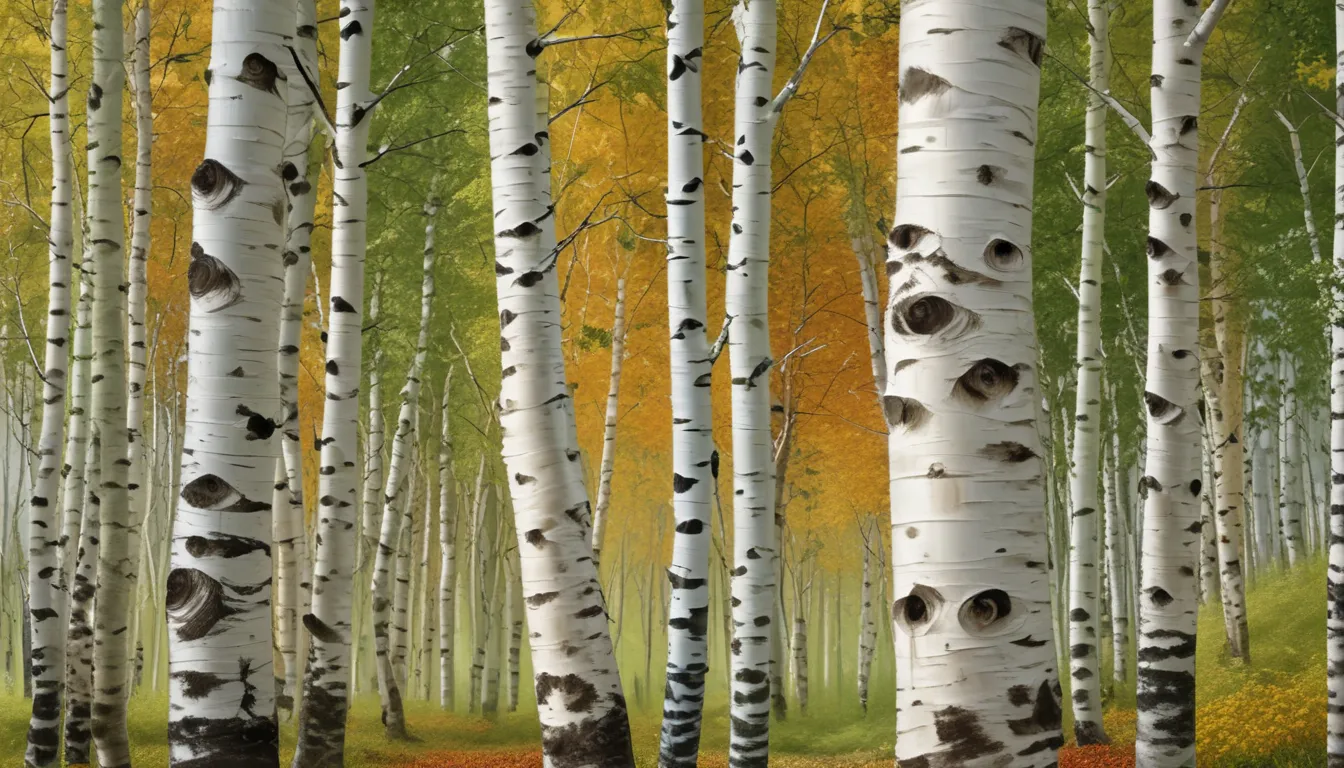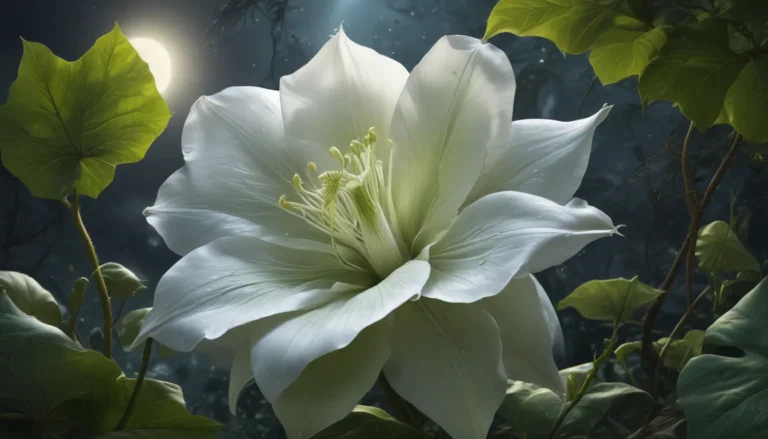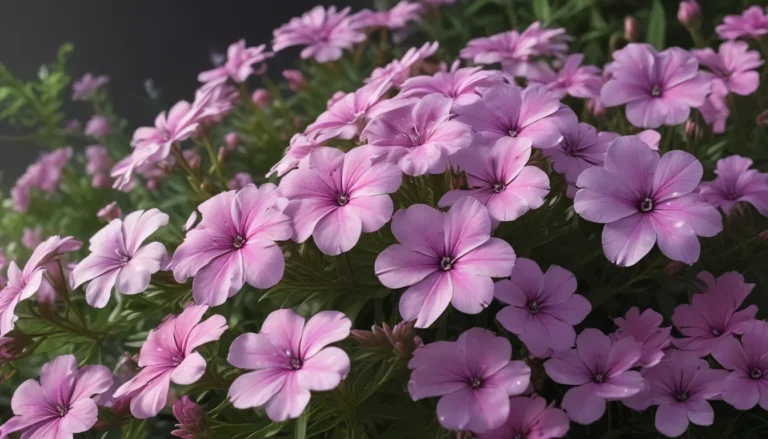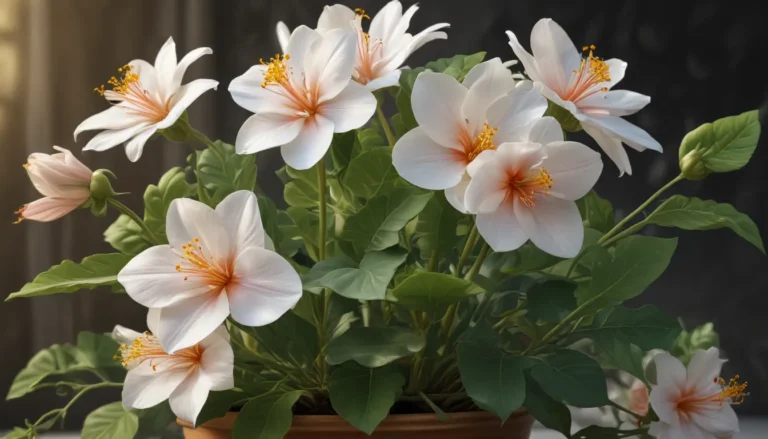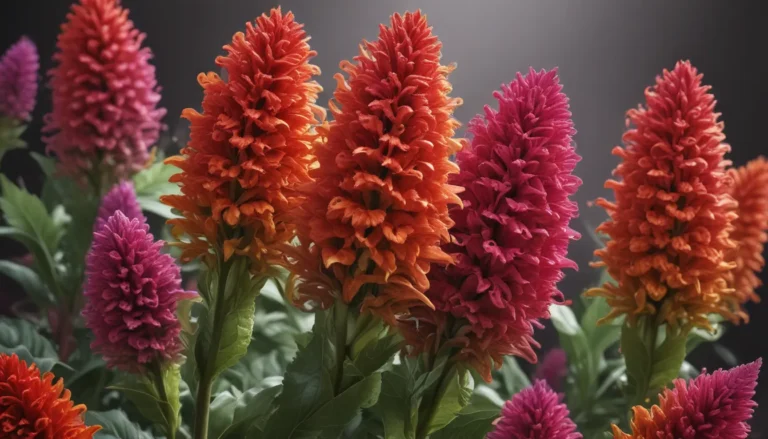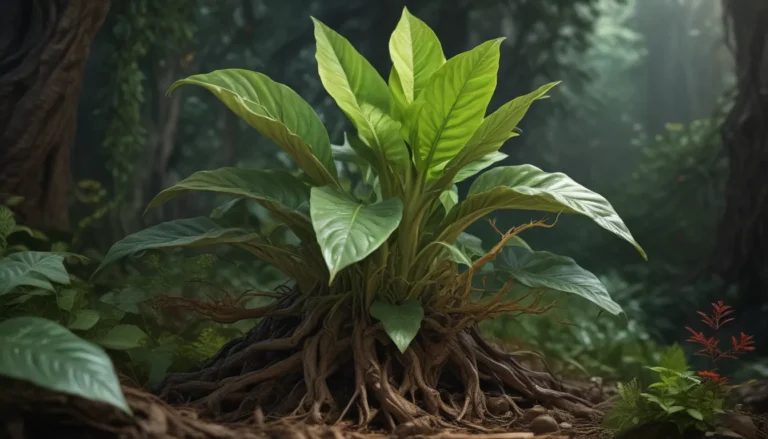The pictures we use in our articles might not show exactly what the words say. We choose these pictures to make you interested in reading more. The pictures work together with the words but don’t take their place. The words still tell you the important facts.
Birch trees are not just charming with their slender trunks and distinctive bark, they are also a vital component of our natural environment. From their cultural significance to their medicinal properties, birch trees hold a wealth of incredible facts waiting to be discovered. In this article, we will delve into 17 unbelievable facts about birch that will expand your knowledge and appreciation for these remarkable trees. So, fasten your seatbelt and prepare to uncover some truly remarkable secrets about birch trees!
Birch: Nature’s Gift to Humanity
- Birch trees are fascinating plants with unique bark and versatile uses.
- They play a crucial role in ecosystems, providing food and shelter for wildlife.
- Birch trees are not just trees; they hold cultural significance and have inspired art, literature, and traditional medicine.
Exploring the World of Birch Trees
Birch Tree Basics
Birch trees belong to the Betula genus, comprising over 60 different species. Their distinctive bark varies in color from white to silver or brown, making them easily recognizable in their natural habitat primarily in the Northern Hemisphere. Certain species of birch trees, such as Betula pendula, have been known to live for over 100 years.
Versatile Uses of Birch Bark
Birch bark has been utilized for centuries by indigenous cultures due to its waterproof and fire-resistant properties. It has been used to craft canoes, baskets, and even traditional medicines, showcasing the diversity of applications for this natural material.
Health Benefits of Birch Sap
Did you know that birch sap is not only safe to consume but also believed to have detoxifying and diuretic qualities? This natural elixir from birch trees has been valued for its potential health benefits throughout history.
Cultural and Symbolic Significance
In folklore and mythology, birch trees are often associated with purification, renewal, and protection. Their significance goes beyond their physical presence in the environment, permeating into the realm of symbolism and cultural beliefs.
Environmental Role of Birch Trees
Birch trees are pioneers in disturbed ecosystems, possessing the ability to thrive in areas affected by fire or logging. Their presence is crucial in ecological succession, facilitating the regeneration of natural habitats.
Wildlife Support Provided by Birch Trees
The seeds, buds, and leaves of birch trees serve as a valuable source of food and shelter for various animals, including birds, squirrels, and deer. Birch trees play a vital role in supporting diverse wildlife populations.
Creative Uses of Birch Wood
Birch wood is highly prized for its durability and attractive grain patterns, making it a popular choice for furniture, flooring, and cabinetry. Its versatility in design and craftsmanship has made it a preferred material for creative endeavors.
Medicinal Value of Birch in Traditional Medicine
Certain cultures utilize various parts of the birch tree, such as leaves and bark, in herbal remedies to address ailments like arthritis and urinary tract infections. The natural healing properties of birch have been recognized and used in traditional medicine practices.
Captivating Beauty of Birch in Art and Literature
From paintings to poems, birch trees have inspired countless works of art and literature throughout history. The elegant and graceful beauty of birch trees continues to captivate the creative world, showcasing their timeless appeal.
Seasonal Delight: Birch Trees in Autumn
During the fall season, certain species of birch trees, such as Betula pendula, display vibrant shades of yellow, orange, and red, creating a breathtaking display of colors in natural landscapes. The autumn foliage of birch trees adds a touch of beauty to the changing seasons.
Insect-Repellent Properties of Birch Bark
The natural oils found in birch bark have been utilized as insect repellents for centuries. Their insect-repellent properties make birch bark a valuable resource in naturally deterring pests.
Delightful Treats from Birch Sap
Similar to maple syrup, birch sap can be tapped and boiled down to produce a sweet and flavorful syrup. This delightful treat showcases the culinary potential of birch trees beyond their visual and environmental contributions.
Relaxing Rituals with Birch in Sauna Construction
In Nordic countries, birch branches are commonly used for sauna whisks, providing a refreshing and invigorating experience when slapped against the skin. The use of birch in sauna rituals adds a touch of tradition and relaxation to wellness practices.
Herbal Beverage: Birch Tea
Birch leaves and twigs can be brewed into a soothing herbal tea renowned for its mild and earthy flavor. Birch tea offers a delightful and aromatic beverage option for those seeking natural remedies and culinary delights.
Embracing the Marvels of Birch Trees
In conclusion, birch trees stand as a testament to nature's ingenuity, resilience, and beauty. From their unique bark and versatile uses to their environmental impact and cultural significance, birch trees continue to captivate and inspire us with their diverse attributes. Whether you are drawn to their folklore and symbolism or their practical applications in everyday life, birch trees offer a wealth of surprises waiting to be explored. Consider planting a birch tree in your garden or delving deeper into their rich history and benefits to fully appreciate the wonders of these remarkable trees.
Birch Tree FAQs: Answering Your Curiosities
- What are some of the different species of birch?
-
Birch trees come in various species, including silver birch, white birch, river birch, and paper birch.
-
Can I grow a birch tree in my small backyard?
-
Yes, certain varieties of birch, such as dwarf birch and weeping birch, are suitable for smaller spaces and can even be planted in containers.
-
Are birch trees susceptible to diseases or pests?
-
Birch trees can be prone to diseases like the bronze birch borer and fungal infections such as birch leaf spot. Regular care and maintenance are essential to prevent and manage these issues.
-
Can I use birch wood for furniture making?
-
Absolutely! Birch wood is renowned for its strength and durability, making it a popular choice for furniture, flooring, and cabinetry.
-
Is birch bark used for medicinal purposes?
-
Yes, birch bark has been traditionally used in herbal medicine for its anti-inflammatory and pain-relieving properties, offering natural remedies for various ailments.
-
How can I harness environmental benefits from birch trees?
- Planting birch trees can aid in reducing soil erosion, enhancing air quality, and providing habitat for wildlife. Their role in purifying water sources and absorbing excess water highlights their environmental contributions.
Birch trees continue to mesmerize with their elegance, versatility, and inherent charm, offering a gateway to explore the wonders of nature. Whether you are inspired by their cultural significance, intrigued by their culinary delights, or simply captivated by their scenic beauty, birch trees hold a world of surprises waiting to be uncovered. Join us in celebrating the magnificence of birch trees and embrace the magic they bring to our lives.
